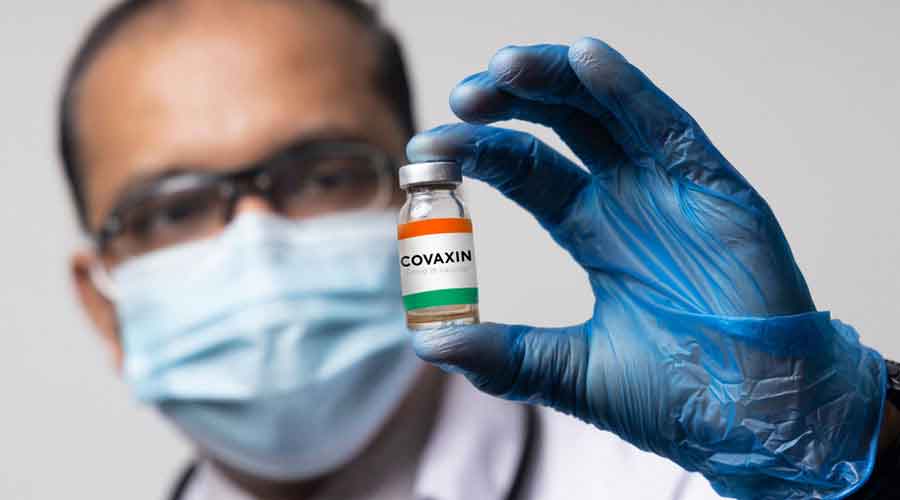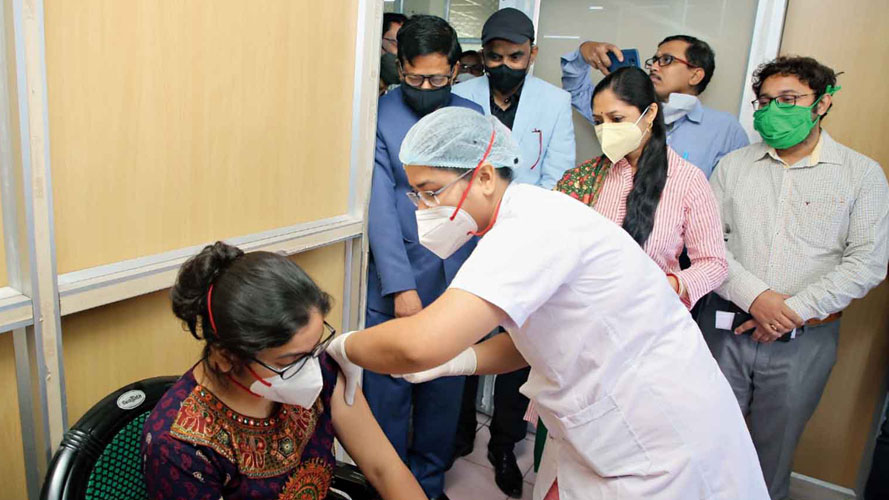Children whose birth year is 2007 or earlier will be eligible for Covid-19 vaccines from January 3, the Union health ministry said on Monday, releasing guidelines for kids’ immunisation and booster doses for high-risk groups.
The ministry said children 15 years or older would be eligible for registration through either an existing account on CoWIN — the digital platform for the Covid-19 vaccination campaign — or through a new account with a unique mobile number. The 15-18 years age group will receive Covaxin.
The appointments could be made in advance online or as walk-ins onsite.
The guidelines also specify that healthcare and frontline workers and people 60 years or older with comorbidities, or underlying health disorders, would be eligible for a third vaccine dose nine months, or 39 weeks after their second dose.
The ministry said people in these high-risk groups would be able to “receive another dose of Covid-19 vaccine” from January 10. The ministry has called the third jab a “precaution dose”, not a booster.
The eligibility of such beneficiaries for the precaution dose will be based on the dates of their second doses recorded on CoWIN. The ministry said CoWIN would send SMS alerts to beneficiaries to take the precaution dose when it becomes due and they could access it through existing accounts on the portal.
India’s inoculation campaign has primarily used two vaccines — Covishield and Covaxin. The guidelines do not specify whether the third dose has to be the same vaccine that the recipients had received earlier or could be the other vaccine, but health experts expect a clarification will emerge before January 10.
“I would expect both strategies — using the same vaccine or using the other vaccine as a third dose — would generate antibodies,” said Jacob John, professor of community medicine at the Christian Medical College, Vellore. “But we’re still waiting for data to determine whether any one of the two strategies is superior to the other.”
Sections of health experts and vaccine researchers have said the decisions to introduce vaccines for the 15-18 years age group and boosters for those 60 years or older with comorbidities are primarily precautionary moves without scientific evidence for their public health gains.
The health ministry, however, said on Monday that the decision to start vaccinating the 15-18 years age group and offer precaution doses to high-risk population groups were taken keeping in view the recent global surge in Covid-19 cases, the emergence of the omicron variant, and inputs and suggestions from technical experts in India.
Narendra Arora, an adviser to the Centre on vaccination policy, had told Doordarshan on Sunday that data over the past two years had shown that 75 per cent of Covid-19 deaths among children had taken place in the 15-18 years age group.












